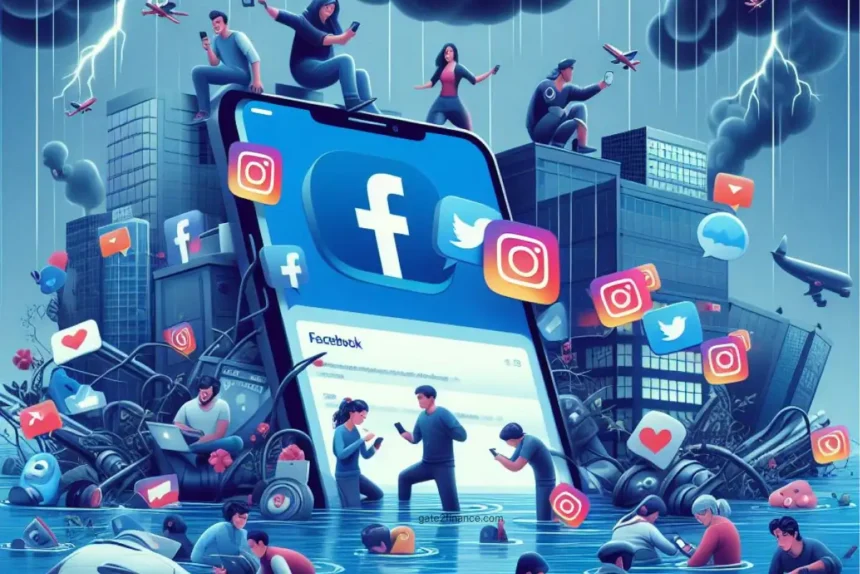In a colossal disruption at Meta, the parent company of Facebook, Instagram, and Messenger, users were left grappling with a sudden inability to access these platforms, signaling a major outage.
Meta Meltdown: The Facebook Fiasco
Users experienced a unique challenge on Facebook, where they were not only unable to load the app or website as usual but also found themselves forcibly logged out. This unexpected situation left many frustrated users unable to regain access to their accounts, sparking concerns of potential hacking activities. On Instagram, the situation was even more dire as the platform flat-out refused to function.
The Hacking Hysteria Debunked
Amid the chaos, warnings of forced logouts triggered a wave of panic, with users fearing their accounts had fallen victim to cyber attacks. However, investigations reveal that the root cause lies in glitches within Facebook’s login system, dispelling the notion of a malicious hack.
Meta’s Muted Response
In contrast to the widespread user distress, Meta, unfortunately, lacks official status pages for its consumer products. Surprisingly, the company had not issued any updates on the outage through its official accounts, including those on Twitter.
The Downfall Displayed
Tracking services such as Down Detector illuminated the magnitude of the outages on Instagram, Facebook, and Messenger. These disruptions were not limited to a specific region, pointing towards a potentially global outage.
Meta’s Mixed Signals
Interestingly, Meta maintains a status page for its business products, encompassing advertising on Facebook and Instagram. According to this page, all business-related products were functioning as expected, adding a layer of confusion to the overall situation.
WhatsApp: A Beacon of Stability
In the midst of the Meta mayhem, WhatsApp, another Meta-owned platform, stood unaffected and continued to operate seamlessly. The contrast in performance raised eyebrows and added complexity to the overall narrative.
In conclusion, the recent outage of Facebook, Instagram, and Messenger has not only disrupted the digital lives of users worldwide but has also exposed the vulnerability of these platforms to unforeseen technical glitches. As the digital landscape evolves, the incident prompts contemplation on the robustness and preparedness of major online entities in the face of unexpected disruptions.








